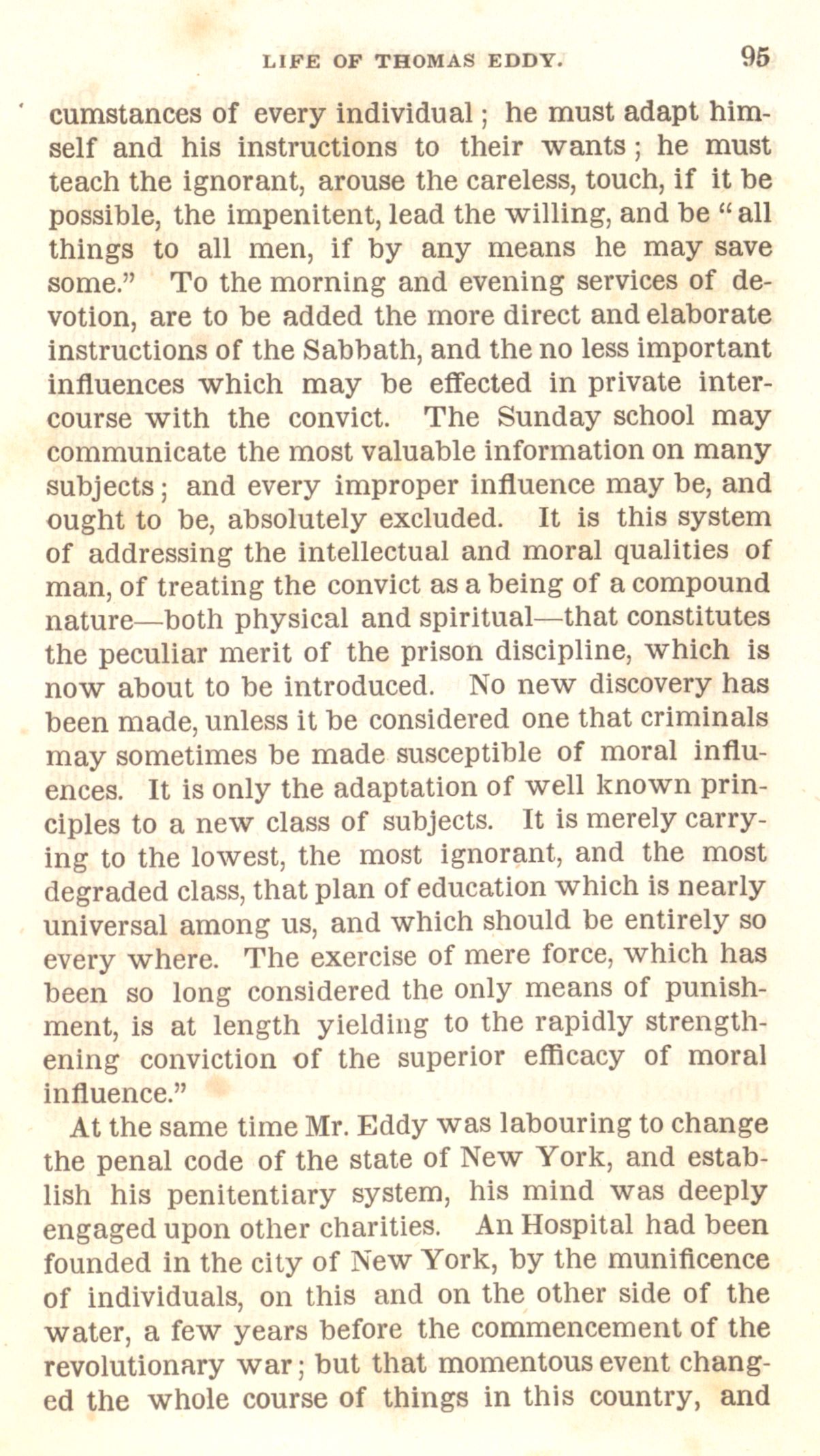cumstances of every individual; he must adapt him-
self
and his instructions to their wants; he must
teach the ignorant,
arouse the careless, touch, if it be
possible, the impenitent, lead
the willing, and be all
things to all men,
if by any means he may save
some. To the morning and
evening services of de-
votion, are to be added the more direct and
elaborate
instructions of the Sabbath, and the no less
important
influences which may be effected in private
inter-
course with the convict. The Sunday school may
communicate the most valuable information on many
subjects; and
every improper influence may be, and
ought to be, absolutely
excluded. It is this system
of addressing the intellectual and
moral qualities of
man, of treating the convict as a being of a
compound
nature—both physical and spiritual—that constitutes
the peculiar merit of the prison discipline, which is
now about to
be introduced. No new discovery has
been made, unless it be
considered one that criminals
may sometimes be made susceptible of
moral influ-
ences. It is only the adaptation of well known
prin-
ciples to a new class of subjects. It is merely carry-
ing
to the lowest, the most ignorant, and the most
degraded class, that
plan of education which is nearly
universal among us, and which
should be entirely so
every where. The exercise of mere force,
which has
been so long considered the only means of
punish-
ment, is at length yielding to the rapidly
strength-
ening conviction of the superior efficacy of moral
influence.
At the same time Mr. Eddy
the penal code of the state of New York
lish his penitentiary system, his mind was deeply
engaged upon other charities. An Hospital
founded in the city of New York
of individuals, 011 this and on the other side of the
water, a few years before the commencement of the
revolutionary war; but that momentous event chang-
ed the whole course of things in this country, and

